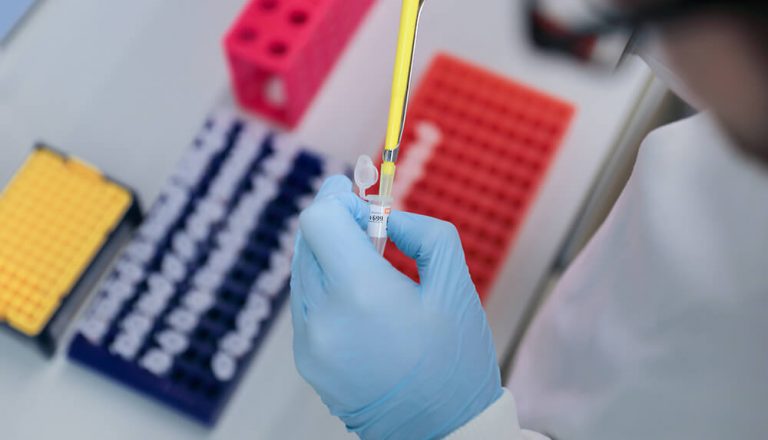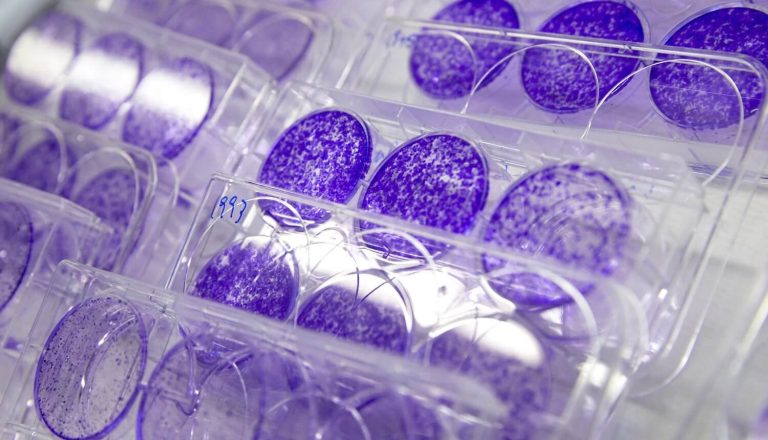Learn about
Radiotherapy

Topics on this page
- What is radiotherapy?
- How does radiotherapy work?
- Proton beam therapy
- How long does radiotherapy take?
- Radiotherapy side effects
Why do children get cancer?
Learn about the causes of childhood cancer and the research behind it.
What is radiotherapy?
Radiotherapy is a treatment where high-energy radiation, such as x-rays, is directed towards parts of the body to kill cancer cells.
There are a few reasons why a child might receive radiotherapy, including to:
- make tumours smaller before surgery – known as neoadjuvant radiotherapy
- kill cancer cells near the site of the tumour to reduce the chance of the cancer coming back – known as adjuvant radiotherapy
- alleviate symptoms if they cannot be cured of their cancer – known as palliative radiotherapy
Radiotherapy may also be used to prepare the body for a stem cell transplant, a treatment for some blood cancers. In this situation, it is given to the whole body and is known as total body irradiation. The main aim of total body irradiation is to suppress the body’s immune system so that it does not reject the donor’s blood stem cells after they are transplanted.
How does radiotherapy work?
There are lots of different types of radiotherapy, but they all work in the same way. The radiation damages the DNA inside cancer cells, which causes them to die or stop multiplying.
There are two main types: external radiotherapy and internal radiotherapy.
External radiotherapy is the most common, and involves a machine which aims radiation beams at the cancer. The strength and the direction of the beam can be altered so that the tumour receives the highest dose, and the non-cancer tissues around it receive lower doses of radiation.
Internal radiotherapy is when radioactive materials are either implanted into the body near the tumour, or injected or swallowed in liquid form. It is used much less often with children, and only used to treat certain types of cancers.
Radioactive implants, known as brachytherapy, release their radiation into the tumour and leave healthy tissue mostly unaffected. The liquid radioactive medicine, sometimes known as a nuclear medicine, travels throughout the body to kill cancer cells wherever they might be.
The type of radiotherapy your child might receive will depend on what type of cancer they have and where it is in the body.
Proton beam therapy
Proton beam therapy is a new type of external radiotherapy. It works in a similar way to standard radiotherapy, but uses particles called protons instead of x-rays to kill cancer cells.
The main advantage of proton beam therapy is that it is much more precise, so that more of the treatment goes to the tumour and less to the healthy tissue around it. This means that it can cause fewer side effects compared to standard radiotherapy. Therefore, it is particularly useful for treating children and young people with certain types of cancer, because their bodies are still developing and may be more affected than adults by long-term side effects.
Until recently, children who were eligible for proton beam therapy on the NHS had to be referred to be treated in Germany or the USA. However, in Autumn 2018, a proton beam therapy centre opened at The Christie hospital in Manchester. Another centre is due to open at University College London Hospital in 2020.
Proton beam therapy is not always better than standard radiotherapy. You can discuss with your child’s oncologist what will be the best option for your child’s treatment.
How long does radiotherapy take?
For external radiotherapy, a course of treatment is usually given in hospital over several sessions – every day for a few weeks, for example. The exact schedule for a course depends on the type of cancer being treated. Each session of radiotherapy may last only a few minutes.
Before starting external radiotherapy, all patients will have an appointment to determine a treatment plan. This will involve having scans to help the doctors decide the correct dose and where exactly in the body it is needed. Careful planning ensures that the treatment is personalised to each individual patient.
For internal radiotherapy, the time it takes will vary, depending on the exact type used. During brachytherapy, radioactive metals are implanted into the body, and could be left in for anything between a few minutes or a few days, or may be left in permanently. Nuclear medicine, where radioactive liquids are injected or swallowed, may require patients to stay in hospital for several days while the medicine clears out of the body.
Your child’s oncologist will be able to give you more details on the exact schedule for the treatment your child will receive.
Radiotherapy side effects
Radiotherapy can cause side effects because the radiation affects normal healthy cells as well as cancer cells.
External radiotherapy is carefully planned to try and reduce the damage that the radiation beams cause to healthy tissue. The side effects your child may experience depends on which part of the body is being treated, and the type of radiotherapy being used.
Your child’s healthcare team can give you more specific information about the side effects your child may experience.
Some side effects occur in the days or weeks immediately after having radiotherapy. These side effects are usually mild, and the team looking after your child’s care can give you advice on how to manage them. Some of the most common short-term side effects of external radiotherapy include:
- Skin reactions – radiotherapy can sometimes cause a reaction in the skin like sunburn, causing the skin to get darker or become sore and itchy.
- Tiredness – treatment can leave your child feeling tired, which can last for a few weeks or months after treatment has finished.
- Feeling sick (nausea) and vomiting – this is more common if the treatment area is near the stomach or the brain.
- Hair loss – patients can experience hair loss in the area being treated. Hair will almost always grow back after treatment has ended, but it may be a different texture or colour to how it was before.
- Reduction in the number of blood cells – depending on the area being treated, radiotherapy can sometimes affect the bone marrow, where blood is produced. This could lead to increased bruising and bleeding, risk of infections, or anaemia.
There are many more potential side effects of radiotherapy than is possible to list here. The exact side effects your child will experience depends on the area of the body that is being treated. You can ask someone in your child’s healthcare team for more information about the possible side effects.
Radiotherapy can sometimes cause side effects which can last for months after treatment. ‘Late’ side effects may not appear until years after treatment has ended. Possible long-term and late side effects include:
- Developmental problems – treatment to the brain can affect how a child grows and develops physically and mentally.
- Infertility – focused treatment on the groin area can affect the testicles and ovaries, even in young children, which may reduce their fertility later in life. Egg or sperm banking might be advised for some children.
- Second cancers – depending on where radiotherapy is being used, there’s a very small chance it may increase the risk that a child develops another type of cancer later in life.
The team in charge of your child’s care will be able to provide more information about the long-term side effects that they might experience, and what can be done to reduce the chance of them happening.
To learn about radiotherapy’s side effects, and those of other cancer types, please visit our side effects page.

Types of cancer treatments
Stay in touch
Stay up to date with all our research news, exclusive stories, fundraising events and opportunities to support us.
"*" indicates required fields